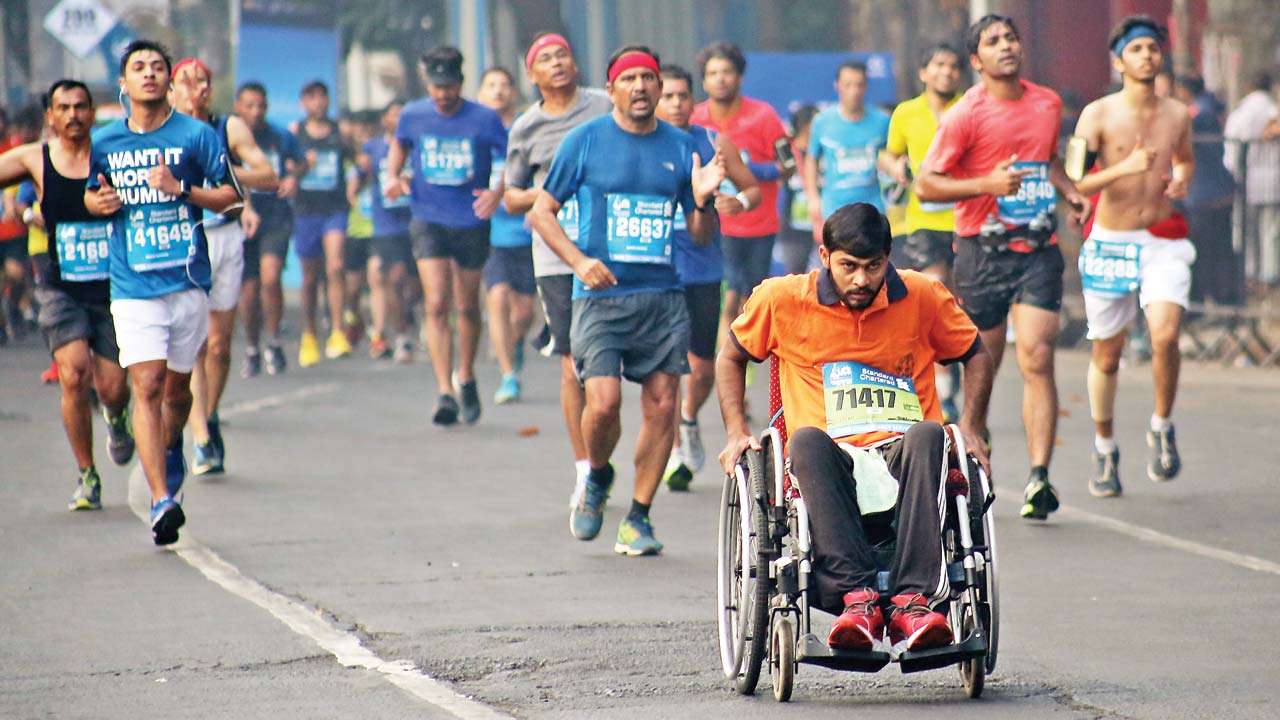
It’s a nightmare to be a disabled person in India. When you go to get a disability certificate, the doctor treats you as if he is doing you a favour. When you get reservations, the government makes you feel that they are doing you a favour. When you want to stand in front of a line at an ATM or have to ask for a seat reserved for you in the metro, people are never hesitant to convey that they are doing you a favour.
There are different terms for people with disability now. ‘Handicapped’ is no longer an acceptable term. The official term in India is ‘divyang’, as if the disabled have some hotline connection to the gods. In the streets though, when people stare at you, you are a cripple, blind, deaf or mute. No politically correct term has been able to remove the stigma that comes with being disabled. For the society, you are abnormal, an aberration amongst people who claim to have fit bodies and minds. In India, the rights of the disabled seem like a thing on paper. There is a gulf between the understanding of disability in society and the written law when it comes to rights. With society’s reaction to disability varying between pity and disgust, it is not surprising that the disabled in India feel ostracised.
People often tell me that they seldom come across disabled people in markets or pubs or malls or on the streets. That’s hardly surprising, considering that the cities we have designed make it almost impossible for the disabled to step out of homes and on occasions when they do, they get to be an animal in a zoo, with every passerby making it a point to stop and stare.
Even financially and socially well-to-do persons with disability find it difficult to cope up with the country we live in. Restaurants and markets don’t want you. They don’t have to write it. They just have steep stairs to indicate that they don’t really want you there. Even places of worship are out of reach, with dress codes and physical customs making accessibility difficult. There are very few disabled parking slots in public places and it becomes impossible to drive through the lawless roads of Delhi or Mumbai without any special provisions for the disabled. The concept of disabled parking and disabled lanes are things we see in western films. The buses are unfriendly to everyone. There are no taxis for people in wheelchair. Basically, on the road, if you are a person with disability, you are left out in the cold.
There are reservations for disabled students in exams and universities. The way things work out though, it becomes impossible for disabled students to even get the benefit of these reservations. I experienced this first hand when I sat for an MPhil entrance exam for a reputed university in the country. I have an orthopaedic disability and they put me on a chair and table meant for a 12-year-old. When I complained, they asked me to produce a medical certificate from a doctor, despite my admit card clearly mentioning that I was physically disabled. It seemed as if all they wanted to do was to shame me to remain seated in the same state in a room full of ‘normal’ peers. The system is meant to humiliate you in a way that you would rather opt out of the system then change or challenge it.
Even when you somehow reach college, there are no attached bathrooms in the rooms of college hostels where the disabled are supposed to study. Braille enabled computers are a rarity if you are not at a premier university. Sign language facilitators even more so. Even when you pass the civil services exams, it is difficult to get a position of your choice/merit without the interference from courts.
Humiliation is an everyday phenomenon for the disabled in India. The ways in which this can be inflicted can differ depending on the place or person’s class. The rights given by the state are never fully enforced. Moreover, one finds that institutionally, we are one of the most disabled unfriendly countries.
These days the disabled only come into the limelight when either they are discriminated against or they become the subject of what we can call ‘inspiration porn’. While the stories of success against all odds are something that deserves space, the day-to-day struggles of those and many others like them against the biases in the system and society are often lost in the flood of inspirational stories. Instead of doing something to change the overall system, all we do is to sit and applaud and then, move on.
For things to change, there needs to be a marked change in the attitude of how the government, institutions, society, corporate organizations and even non-profits look at people with disabilities. Instead of disability, the focus needs to be on their potential and what the society can do, to get the best out of them. That, in turn, requires better facilities and friendlier attitude towards the disabled and a greater awareness in society about the care and respect that they deserve. Till then, everyday life for people with disabilities in India will be full of stories of discrimination and humiliation.
The author is a poet and activist based in Delhi